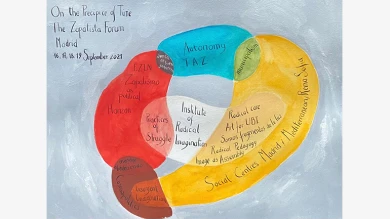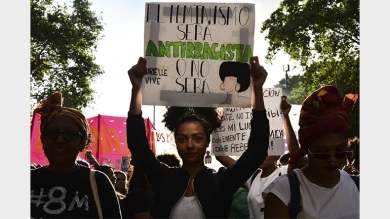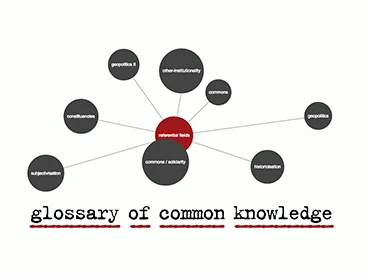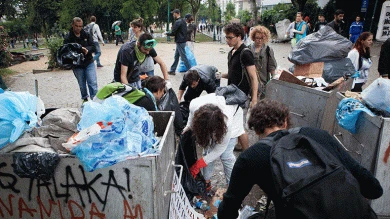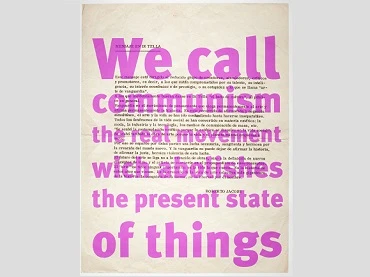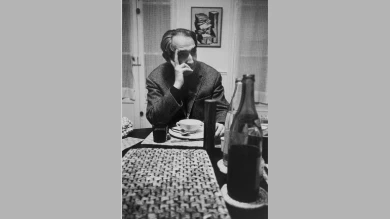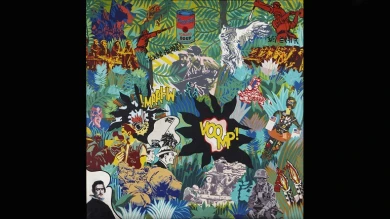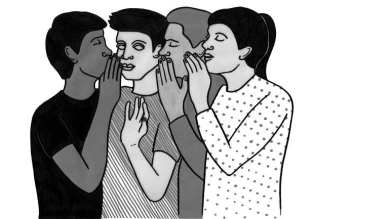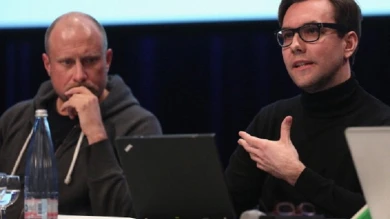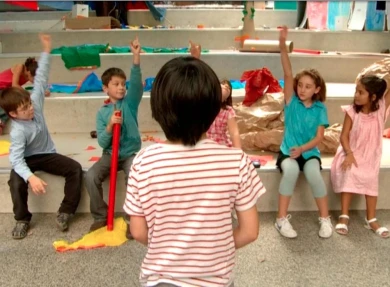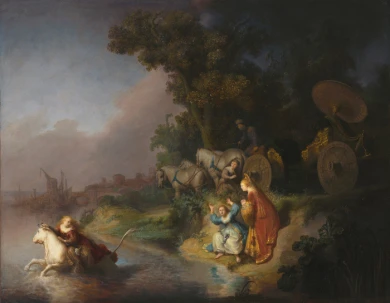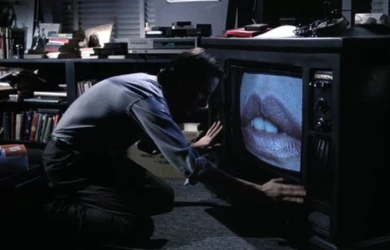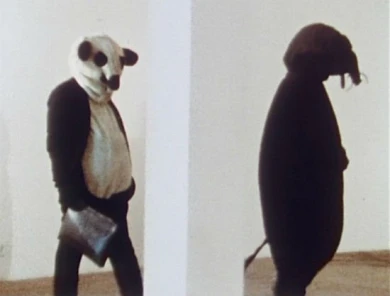L’Internationale
L'Internationale is a confederation of museums, modern and contemporary art institutions, research centres and European arts organisations. Its name originates from the workers’ anthem calling for an equal, democratic society and referencing the workers’ movement across history. From local, shared stories, L'Internationale focuses on what is to come, imagining, developing and implementing new perspectives to build a fair, democratic and sustainable future for everyone across the globe.
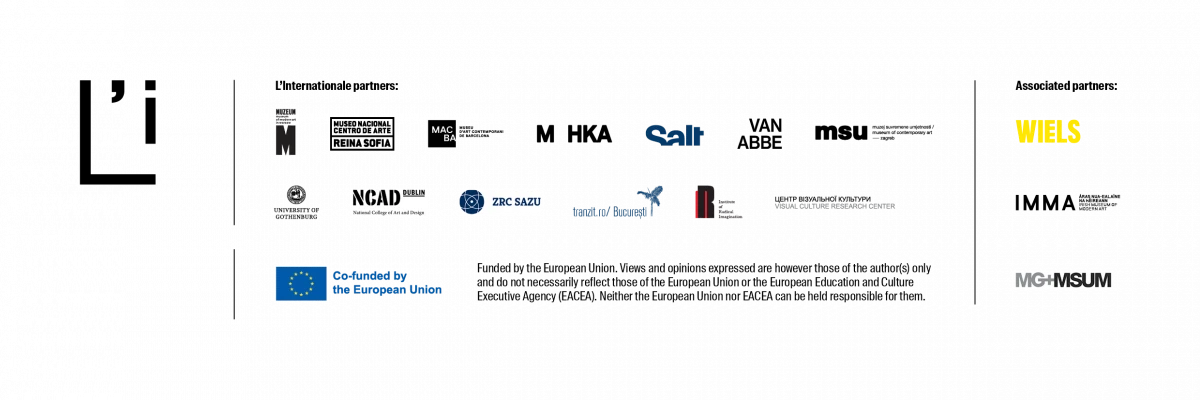
In its current configuration, L’Internationale comprises thirteen institutions: HDK-Valand (Gothenburg, Sweden), Institute for Radical Imagination (IRI, Italy); Museu d’Art Contemporani de Barcelona (MACBA, Barcelona, Spain); Museum van Hedendaagse Kunst Antwerpen (M HKA, Antwerp, Belgium); Muzeum Sztuki Nowoczesnej w Warszawie (MSN, Warsaw, Poland); Muzej Suvremene Umjetnosti (MSU, Zagreb, Croatia); Museo Reina Sofía (MNCARS, Madrid, Spain); National College of Art and Design (NCAD, Dublin, Ireland); SALT (Istanbul and Ankara, Turkey); Tranzit.ro (Bucharest, Cluj, Iasi, Romania); Van Abbemuseum (VAM, Eindhoven, Netherlands); Visual Culture Research Center (VCRC, Kiev, Ukraine); Research Centre of the Slovenian Academy of Sciences and Arts (ZRC SAZU, Ljubljana, Slovenia); and three associate organisations: Irish Museum of Modern Art (IMMA, Dublin, Ireland); Moderna galerija (MG+MSUM, Ljubljana, Slovenia); and WIELS (Brussels, Belgium).
Museum of the Commons
Towards a Healthier Arts Ecosystem
2023-2026
Museum of the Commons is a four-year project running from 2023 to 2026 and centres on three main focal points: the climate emergency, decolonial perspectives and situated institutionalism.
The first strand addresses issues around the current global climate crisis, the sustainability of institutional, artistic and cultural practices and processes and the urgent need to transform our policies, societies, cultures and ways of life to move towards more ecologically sustainable models.
The second work line is centred on decolonial perspectives, zooming in on the pivotal role of local history in building identities, policies, societies and contemporary cultures to investigate the persistence and long-term impact of environmental and colonial, historical and present-day violence.
Finally, the third focal point is aligned towards reflecting on the role of art museums and organisations as agents in social networks and complex ecosystems in order to look for new forms of democratising institutions and making them more open, inclusive and useful.
Via this programme, L'Internationale seeks to mobilise art and culture as strategic tools in processes to heal, reconstruct and socially repair the damage done. These three work lines will serve as a guide to the content explored in the Museum of the Commons activities, ranging from exhibitions to nomad schools, artists’ residences and community workshops, and will explore contemporary models of sustainable cultural production and put forward frameworks for new forms of cultural co-creation, contributing to environmental, social and artistic transformation.
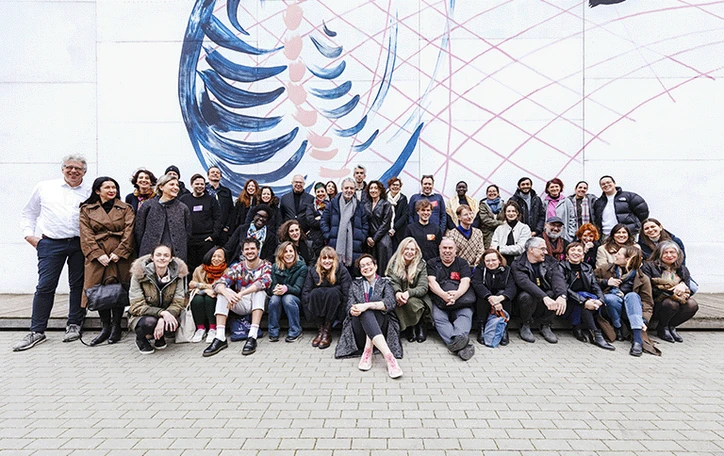
A gathering to launch Museum of the Commons, Warsaw, 2023
Photograph: Marta Ejsmont, MSN, Warsaw, Poland
Activities
Estancias y publicaciones
Our Many Europes
Europe's Critical ‘90s and the Constituent Museum
2018-2022
Our Many Europes is a programme organised by the European museum confederation L’Internationale and co-financed by the European Union’s Creative Europe programme. The members of L’Internationale and its partners HDK- Valand Academy (University of Gothenburg, Sweden) and the National College of Art and Design, Dublin (NCAD, Ireland) will present more than 40 public activities (conferences, exhibitions, workshops) in the framework of this project.
The 1990s is the decade contemporary Europe was born — Europe expanded and diversified when technology and post-Cold War politics turned the world into a ‘global village’. Understanding who we are today — the challenges we face, the possibilities we have — begins post 1989, when a divided Europe ended and the plurality of the many Europes we inhabit today began. Art and culture are the driving forces behind these changes and they became part of the European agenda with the signing of the Treaty of Maastricht in 1992. Furthermore, the art of the 1990s profoundly reflects a fundamental shift in civil society with the irruption of the internet and open border politics within Europe.
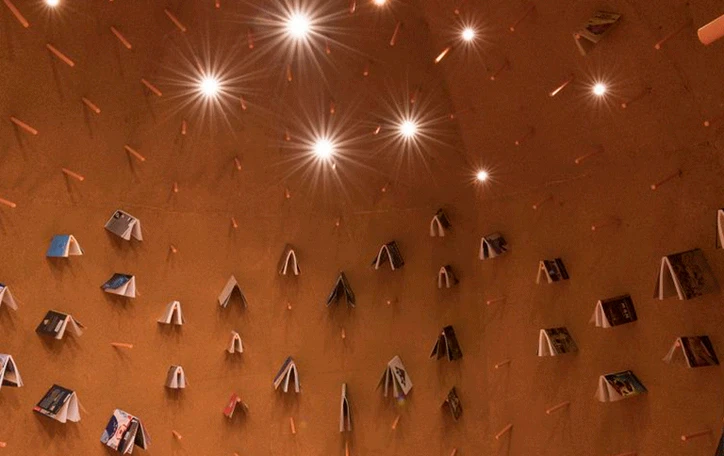
Exhibition view In the Open or in Stealth. The Unruly presence of an intimate future. MACBA, Barcelona, 2018
Photograph: Roberto Ruiz
Activities and exhibitions
The Uses of Art
The legacy of 1848 and 1989
2013-2017
This programme, organised by L’Internationale and co-financed by the European Union’s Culture Programme, started in 2013 and proposes new readings of European art history. Its perspective on the past is anchored in the long history of civil society, tracing it back to the civic revolutions of 1848 through wars and social changes, up to the revolutions of 1989 and then on to the economic crises of today.
The activities (exhibitions, conferences, symposia, workshops, publications, cinema programmes), planned as part of The Uses of Art project, can be divided into those that reflect on the formation of civil society in the mid-19th century from today's perspective and explore the role of art in democratic emergence; those that revisit the 1980s and focus on the relation between artistic experiment and the beginnings of a trans-European civil society; and, finally, those that think through the future possibilities of European society based on common cultural references and transnational identities.
The organisation of exhibitions, symposia, publications, education programmes and staff exchanges culminated with simultaneous exhibitions across Europe, thus generating a content-driven, sustainable form of collaboration in the museum field that will ensure new forms of transnational access — both physical and digital — as well as intercultural dialogue on society and visual art, and the sharing of professional skills and knowledge about collections and artistic projects.
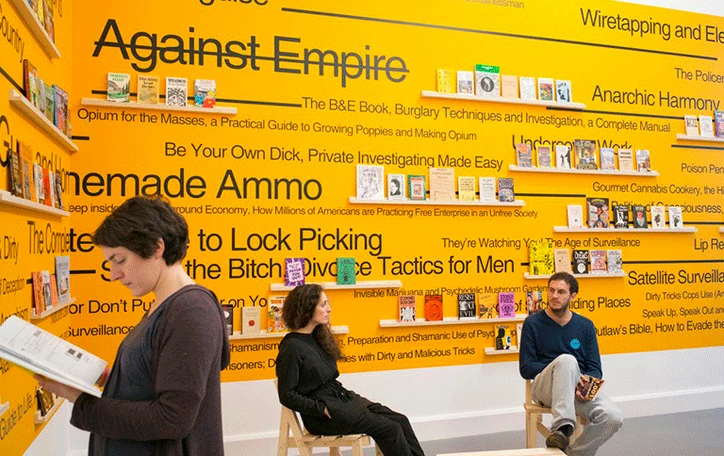
Museum of Arte Útil. Van Abbemuseum, 2013
Photograph: Peter Cox
Activities and exhibitions
Online platforms
In addition to the projects, research and activities which L’Internationale fosters, there are two online platforms which are transversal to the confederation work
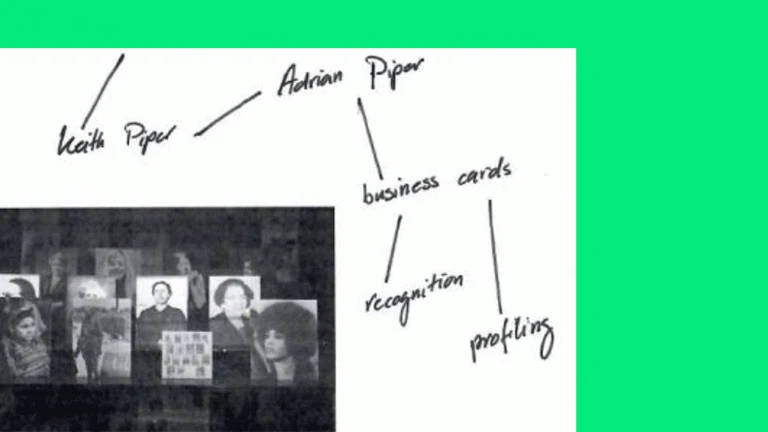
L'Internationale Online
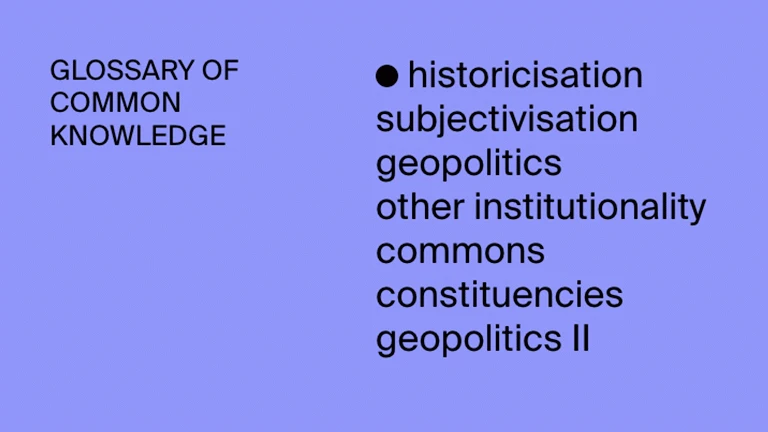
Glossary of Common Knowledge
Special
The museum confederation L'Internationale has invited a broad range of artists to share from their present working and living spaces, from their current conditions of confinement
![Sanja Iveković, Trokut [Triángulo]. Fotografía, 1979](https://recursos.museoreinasofia.es/styles/small_landscape/public/Museo%20Tentacular/banner-artistas-cuarentena.jpg.webp)

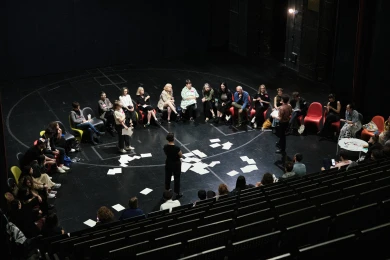
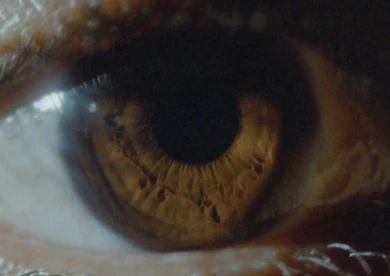
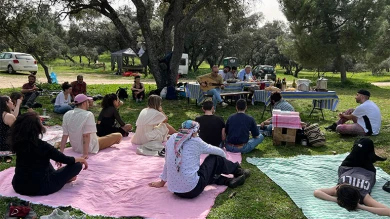
![Basel Abbas y Ruanne Abou-Rahme, At Those Terrifying Frontiers Where the Existence and Disappearance of People Fade Into Each Other [En esas fronteras aterradoras donde la existencia y la desaparición de personas se disuelven entre sí], 2019. Museo Reina](https://recursos.museoreinasofia.es/styles/small_landscape/public/Actividades/palestina_1.jpg.webp)
![Patricia Esquivias, Cardón cardinal (Cardinal Cardon [A Lilli Hartmann Watercolour Woven by Jorge Damián and José Flores in Guadalajara, Mexico]), 2019. Museo Reina Sofia](https://recursos.museoreinasofia.es/styles/small_portrait/public/Investigaci%C3%B3n%20y%20educaci%C3%B3n/Screenshot%202024-12-05%20at%2011-48-14%20Patricia%20Esquivias%20-%20Cardo%CC%81n%20cardinal%20%28Acuarela%20de%20Lilli%20Hartmann%20tejida%20por%20Jorge%20Damia%CC%81n%20y%20Jose%CC%81%20Flores%20en%20Guadalajara%20Me%CC%81xico%29.png.webp)
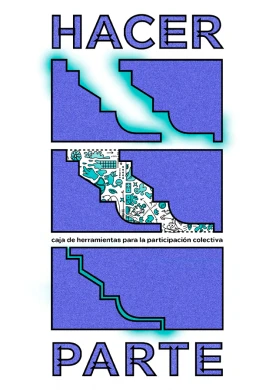
![Benvenuto Chavajay, Suelo de zapato No. 39, 2022. Pirograbado en piel de animal sumergido en el agua del Lago Atitlán (Guatemala), que funciona como instrucciones de la performance Almas en Retorno [Popol Wuj]. Fotografía cortesía del artista](https://recursos.museoreinasofia.es/styles/small_landscape/public/Actividades/benvenuto_snippet.jpg.webp)
